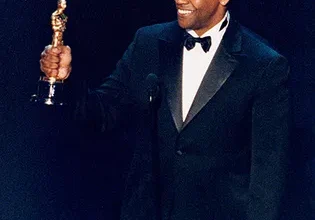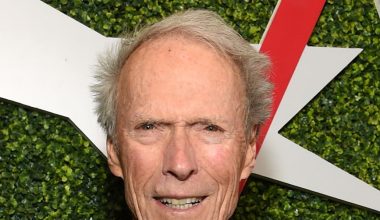Xavier Dolan grew up in Montreal, Quebec, after being born on March 20, 1989. His parents are Manuel Tadros, an Egyptian-Canadian actor and singer of Coptic and Lebanese heritage, and Geneviève Dolan, a Québécois public college administrator with Irish ancestry. At the tender age of two, his parents split up, and he was left in the care of his mother in the Montreal suburbs. Because his father had a second marriage, he has an older half-brother.
His aunt was a production manager, and she suggested he try out for a little part in a TV drama when he was four years old. That’s when he got his acting start. The 21 ads he appeared in for the Canadian pharmacy company Jean Coutu stand out the most. He continued working until he was eight years old, at which point his mother moved him to a boarding school in rural Quebec for five years because she couldn’t handle her son’s hyperactivity.
Since Dolan was having trouble getting acting work, his substantial dubbing business was also picking up steam around this time. Before he returned to Montreal for school, casting directors said he was “too small, too big, too young, too old for all kinds of roles.” After he returned, they changed their minds. After finishing high school, he enrolled in the College of Maisonneuve to study literature, but he barely lasted two months before dropping out due to the stifling atmosphere.
Canadian filmmaker
The Canadian director Xavier Dolan is well-known for his emotional storytelling and distinctive visual flair. His roles in films like Mommy, Heartbeats, and I Killed My Mother have brought him international renown. Dolan has won several accolades for his cinematic work, which frequently explores themes like human relationships, personal identity, and familial dynamics.
Indie films
Xavier Dolan is known for his unique cinematic style. Those gigantic Hollywood ones are nothing like those. He does a lot of the heavy lifting alone, including writing, directing, and producing.
I Killed My Mother and Mommy are just two of his films that take a unique approach to telling true events. Though they may be difficult to watch at times, they certainly provoke thought.
Not only does Dolan not shy away from talking about heavy topics, but his characters come off as genuine, like someone you may know. The fact that Dolan isn’t affiliated with Hollywood doesn’t stop him from casting A-list stars in his films. You can produce good films without huge budgets and spectacular effects, as Xavier Dolan’s works demonstrate.
Netflix Originals
Some of his films have found their way onto Netflix thanks to the streaming service’s acquisition of distribution rights. As an example, Netflix users have been able to see one of Dolan’s films, The Death and Life of John F. Donovan. Streaming services have given his work a home on the platform, allowing it to reach a wider audience.
I Killed my mother
I Killed My Mother (2009) was Dolan’s first feature film, and he intended to produce, direct, and star in it when he was seventeen years old. He put his personal resources of $150,000 into the film and persuaded Quebec TV star Anne Dorval to co-star. Unfortunately, he was unable to continue filming due to a lack of funds. Carole Mondello, a seasoned producer and production manager, was brought on as executive producer when his distributor and producer pulled out of the project. By negotiating for financing from the Quebec Cultural Development Corporation, she assisted Dolan in finishing the film. Section SODEC. In this semi-autobiographical picture, the protagonist, played by Dylan, is a homosexual adolescent whose mother, Dorval, makes the difficult decision to send him to boarding school. At the end of the film’s debut, the audience went into an eight-minute ovation.
The Cannes Film Festival’s Directors’ Fortnight festival segment. In the end, the Hollywood Reporter’s Peter Brunette expressed the consensus of many critics, including Dolan, who acknowledged the film’s flaws and characterized it as “a somewhat uneven film that demonstrates a great deal of talent.” Brunette chimed in that the film was bold and hilarious. It had “the sting of shrewdly observed truth,” according to Screen International’s Allan Hunter.
The Art Cinema Award, the SACD Prize for writing, and the Prix Regards Jeunes were three distinguished accolades bestowed by I Killed My Mother at Cannes. Among its many accolades at foreign film festivals was a Lumière Award for best French film produced outside of France. It shocked Denis Villeneuve’s 2009 film Polytechnique by winning four Prix Iris prizes, including Best Screenplay, Most Successful Film Outside Québec, and Best Film. At the Genie Awards, though, I Killed My Mother didn’t even have a chance to compete in any category.
The Claude Jutra Award, which is now known as the Canadian Screen Award for Best First Feature, was bestowed for the picture at the Genies. Additionally, the Toronto Film Critics Association presented Dolan with the first-ever $5,000 Jay Scott Prize for young talent. The Toronto International Film Festival (TIFF) honored the film “I Killed My Mother” as one of the year’s top ten Canadian movies. Not only that, but it was selected as Canada’s official submission for the Best Foreign Language Film Oscar. However, the picture did not get a theatrical distribution in the US until 2013 because its US distributor, Regent Entertainment, had legal issues.
Mommy
Mommy, Dolan’s sixth movie, flips the script on his debut picture. Dorval plays a loving middle-aged single mother who, after rescuing her violent son Antoine Olivier Pilon from an institution, tries to have his neighbor Clément educate him. Once again, Turpin messes with the aspect ratio after shooting Mommy. Using a 1:1 square frame, the film mostly features several
scenes were widened to reflect the individuals’ ever-expanding inner lives. At the Cannes Film Festival, where Mommy had its world debut, the crowd went wild, yelling “bravo!” as the credits rolled. Many thought it would take home the Palme d’Or, and it was actually tied for first place in the jury prize category with Adieu au langage (Goodbye to Language 3D, 2014) by Jean-Luc Godard.
Afterwards, Mommy became the year’s most successful Canadian picture, winning the Prix Iris and the Canadian Screen Awards. Best picture, director, editing, and original script were among its nine accolades at the two galas. Not only was it named the most successful picture of the year in Quebec, but it also took home the prize for most successful film outside of Quebec, the Prix Iris Billet d’Or. With a total of $3.3 million, Mommy was the highest-grossing French-language Canadian picture of the year, earning Telefilm Canada’s $40,000 Guichet d’Or award.
The Death and Life of John F. Donovan
The Death and Life of John F. Donovan, Dolan’s first feature film in English, began filming in July 2014. A little child and a Hollywood movie star have a pen-friend connection in the script, which was co-written with Jacob Tierney (The Trotsky, Letterkenny). A letter that Dolan sent to Leonardo DiCaprio when he was eight years old served as the inspiration for the proposal.
Production issues plagued the set of the picture, which featured Kit Harington, Kathy Bates, Susan Sarandon, Jacob Tremblay, and Natalie Portman. After two years of editing, Dolan declined two invites to the Cannes Picture Festival to debut the picture.
After the initial version of the picture ran over four hours, director Christopher Nolan decided to eliminate a whole plotline involving Jessica Chastain. At the 2018 Toronto International Film Festival, the picture finally had its premiere, and critics were divided. A work of breathtaking craftsmanship overshadowed by its jaw-dropping solipsism, according to Variety’s Peter Debruge. The
Benjamin Lee of the Guardian said that the film was so confusing to watch and comprehend that the agony of the editing process was evident in every frame. Mike D’Angelo of the AV Club described it as an emotionally charged outburst that was hardly comprehensible. Metacritic gave The Death and Life of John F. Donovan a 28 out of 100 for its poor reviews when it was released in December 2019.
Uncertain Regard
The Un Certain Regard program at the Cannes Film Festival is renowned for showcasing avant-garde and distinctive filmmaking, and Xavier Dolan’s works have been featured in it.
His visually stunning and narratively engaging films have garnered acclaim; examples include Mommy and I Killed My Mother. In 2014, Mommy was even awarded the Jury Prize in this category. Complex characters and aesthetically stunning cinematography are common tools in Dolan’s toolbox as he investigates issues of love, identity, and family relationships. His participation in Un Certain Regard highlights his abilities and adds to the variety of perspectives honored at Cannes.
Super Bowl halftime
Incredible cinematography and profound emotional impact are hallmarks of Xavier Dolan’s work. Many believe he might provide a unique and unforgettable performance for the Super Bowl halftime show. Given his storytelling abilities, he has the ability to captivate an audience. It may be fun if it’s different from the halftime performance we normally witness. There would be many individuals who remembered it long after it happened.
Jury Prize
Although his 2014 picture, Mommy, was nominated for both the Palme d’Or and the Jury Prize at the Cannes Picture Festival, Xavier Dolan was not awarded either. Dolan became a household name because of his films, which are acclaimed for their intense storytelling and unfiltered emotions.
His 2014 Cannes Film Festival Jury Prize-winning feature, Mommy, was one of his most celebrated works.
César Awards
At the César Awards 2014, Mommy received a total of eight nominations, including
Best Film and Best Director for Dolan. Although it didn’t win the top honors, the film
showcased Dolan’s talent and cemented his reputation as a rising star in the world of
cinema.
Xavier Dolan acting career
Xavier Dolan began his acting career in Quebec, Canada, doing commercials and television shows when he was a young man. He became recognized in 2009 as an actor in the film I Killed My Mother, which he co-wrote and directed at the tender age of 19. Heartbeats and Mommy, two of Dolan’s own films, were critical and commercial successes. He has shown his versatility by appearing in films directed by other filmmakers as well.
Lost Illusions
The 2021 French drama film Lost Illusions was helmed by Xavier Giannoli and written by Giannoli and Jacques Fieschi. It was based on Honoré de Balzac’s 1837–1843 work, Illusions perdues. Actors like Gérard Depardieu, Cécile de France, Vincent Lacoste, Xavier Dolan, and Benjamin Voisin are in it.
It premiered on September 5, 2021, at the 78th Venice Film Festival. Gaumont will release it in France on October 20, 2021. Notable nominations at the 47th César Awards were Best Picture, Best Adapted Screenplay, Best Cinematography, Best Supporting Actor (for Lacoste), and Most Promising Actor (for Voisin), among seven others.
Lost Illusions Synopsis, A young poet named Lucien de Rubempré moves from his home in the French province of Angoulême to Paris in the 1820s following an affair with a woman he had an affair with.
as a member of the community’s elite. He wants the literary world to recognize him, but he’s also sensitive, idealistic, good-looking, and resolute. But much to his dismay, he finds that he is reliant on the realm of lowbrow journalism and must earn a living by penning scathing theatrical reviews. Lucien gives in to his nasty employer Étienne Louxteau’s demands and becomes rich via cronyism and bribery, but he loses his creative integrity and old connections in the process. He tries to purchase a title of nobility as a last resort to escape the devouring filth, but his worst flaw—his ambition to rise above his humble beginnings and illegitimate birth—destroys him. Even this turns out to be a mirage, and in the end, he is socially and politically crushed by the dominant cycle of fake news, and he returns home to oblivion.






